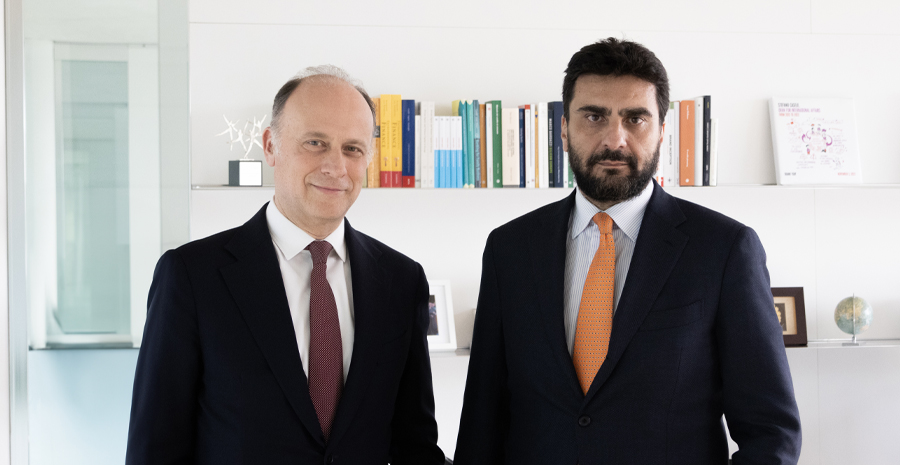
- Start date
- Duration
- Format
- Language
- 2 Dic 2025
- 4,5 days
- Class
- Italian
In the automotive sector, even more than in other industries, this pandemic could really be the perfect storm, with many without chance to re-emerge. Certainly not in their previous shape and with the same mission. This is the opinion, and not a covert one, from someone who knows the industry very well. Former President and CEO of Mercedes-Benz Italia, then board member of VW group Bram Schot has recently stepped down from being the CEO of Audi AG. In a Leadership Series conversation with Maurizio Dallocchio and Francesco Daveri in front of a virtual audience of students from SDA Bocconi’s Full-time MBA, Schot has not held back any criticalities of the present situation, but at the same time he has highlighted how to overcome it, adapting to change, and ending up being stronger, better. Realism and trust, two important qualities of a leader.
The perfect storm is generated by the overlapping of various exceptional events. The revolution in the automotive sector, slowly but relentlessly transitioning from heat to electric engines in the face of the challenges of sustainable mobility, has now clashed with the Covid-19 pandemic. While the industry was changing its manufacturing and organizational paradigms to become more environmentally friendly, with new partnerships and huge long-term investments, the lockdown has paralyzed it, disrupting demand, exacerbating carmakers’ overcapacity and foreboding an unprecedented employment crisis. On top of that, European car manufacturers are facing the risk of multi-billion fines since the circumstances prevent them from meeting EU carbon-cutting targets in 2020.
This being the situation, is it possible to go back to normal in a reasonable time? It depends on what the next normal will be. According to Schot, this great crisis can be a great accelerator of innovation and can revitalize the car industry: “The focus will no longer be on vehicles but mobility. This is the key issue in a world whose population tends to concentrate in urban areas where there is no physical room for an ever growing number of cars, and younger generations are not willing to spend as much on mobility as it used to be in the past. Brands should no longer think of themselves as car makers but as mobility providers, selling kilometers not engines”. An evident shock based on today’s standards: “Of course, shared mobility means that less cars are sold. But it is inevitable”. And change should be guided, not hampered.
In manufacturing, new normal rhymes with new primitive. Streamlining is the must: “product portfolios, concepts of vehicles, materials and parts. I cut 30% of Audi variants and trims to enhance sustainability. Even the single car needs to be made simpler: as of now, customers only use about 20% of the digital functions available on board. We should offer them just what they really need”. It is not about quantity but more usable quality thanks to digital technologies. In the mind of new target customers, mechanics and performance are giving way to software and environmental standards. Materials will carry more weight, too. Or rather less: “We need to develop materials which are light-weight, stronger, bendable, recycled/recyclable. We pooled with BMW and Mercedes to use plastics from the oceans. 30 to 70 kg of the plastics in our cars derives from cleaning the environment”.
It is a cultural revolution, and we need leaders who are up to guiding it. We need to rethink the production chain and the organization of work, to build compensation incentives incorporating green targets, to interact with government and local authorities to shape shared industrial and environmental policies, to bring next normal to consumers and especially company leaders, often being the ones who resist change. We all need to understand that cars will be more and more like a commodity; and they will be customized and driven by software. “Is it bad news for traditional car makers? Yes, it is”, says Schot. “But if we stay put, we will be dead. We do need to change”.
SDA Bocconi School of Management



This course aims to focus on essential leadership skills that are deemed vital in navigating the dynamic organizational landscape.

